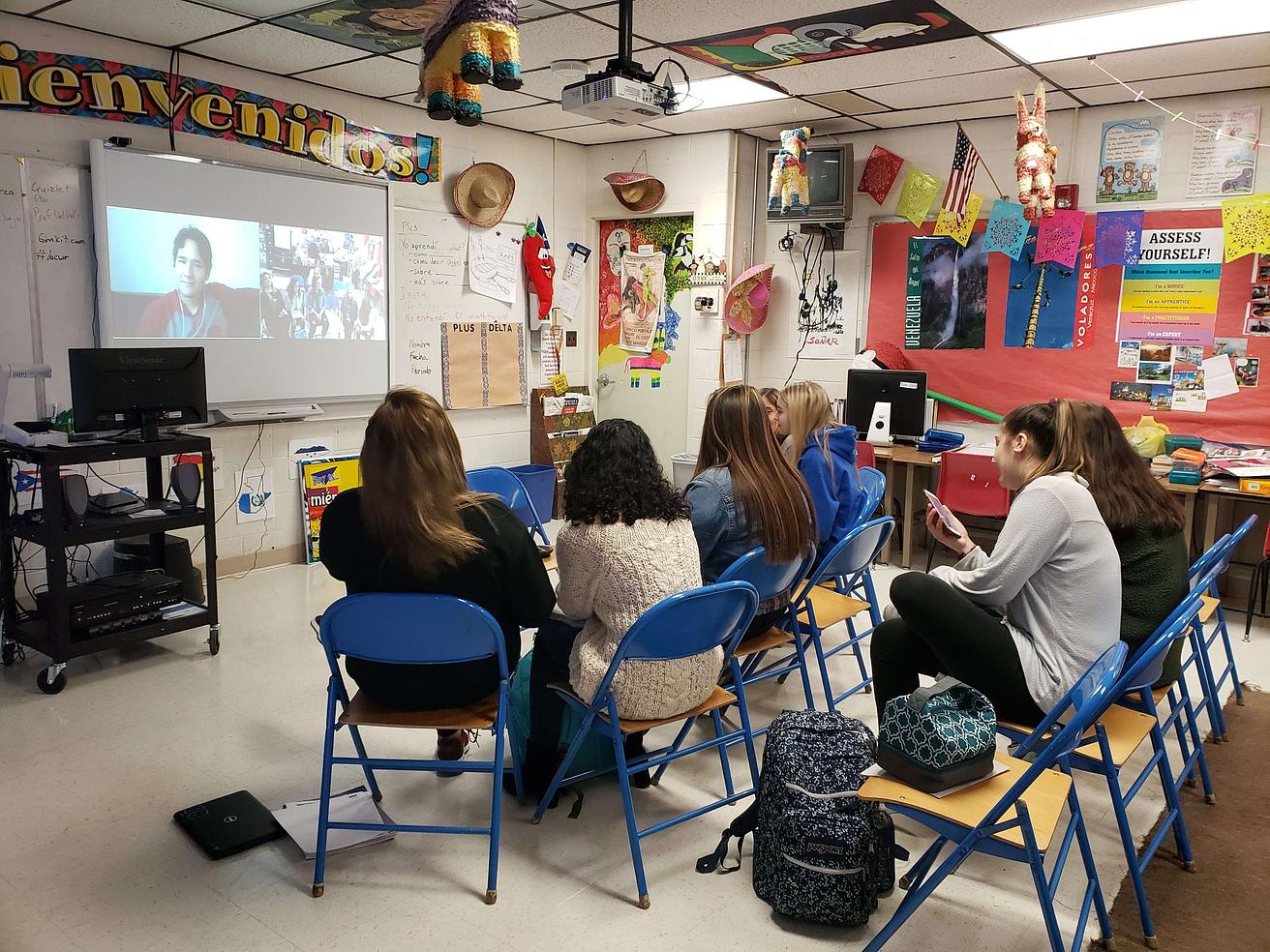Every couple of weeks this past spring, Catherine DelValle, a Spanish teacher at Russell High School in Russell, Kentucky, gathers her students around their classroom’s Smartboard to spend an hour in conversation with Pavel, a 27-year-old Venezuelan currently living in Argentina. Conversation topics range from casual to serious; they discuss their favorite movies and TV shows, their families and daily life, what it’s like to grow up in Venezuela versus America, and the political crisis in Venezuela that forced Pavel to leave his home country.
These students connect with Pavel through a social enterprise called NaTakallam (“We speak” in Arabic) which employs refugees, asylum-seekers, and displaced persons to teach their languages and engage in cross-cultural exchange with individual students, classrooms, universities, and companies around the world over the internet. Ms. DelValle discovered NaTakallam from a colleague of hers who uses NaTakallam to connect her social studies classes with a Syrian woman living in Turkey to discuss immigration, and she decided to bring the program to her advanced Spanish class.

She is very pleased with the results. “[My students] love practicing their Spanish with native speakers in the classroom because they can feel more comfortable when speaking with native speakers they meet in the real world,” she said. But, on top of that, she saw the students engaging with world issues in a deeper and empathetic way. “They’ve gotten to know Pavel and have formed a relationship with him. They worry about him when we don’t have a session in a while, and they really keep up with the news about Venezuela. [NaTakallam] has allowed them to strengthen their empathy toward people of other cultures.” However, the benefit goes beyond just Ms. DelValle’s students. Money from the program goes to directly to support Pavel’s livelihood, and he loves his work teaching.
Since launching its classroom programs in 2017, NaTakallam has held over 500 sessions with over 100 classrooms in 10 countries, providing empathy-building experiences to nearly 4000 students. Still, at a political level, the backlash against Middle Eastern, African, and Latin American migrants has only increased in recent years with the rise of anti-immigrant parties and laws that target vulnerable migrant populations. Under these conditions, everyone can benefit from these empathy-building conversations, so NaTakallam has opened up guest speaking sessions to groups of all ages. Now, offices, faith communities, and other groups can sign up to have conversation sessions with NaTakallam conversation partners (CPs) from Syria, Iraq, Iran, Afghanistan, Guinea, Venezuela, Honduras, and Nicaragua. The goal of these sessions is to show people the lives behind the news headlines, just as they have for the students in Ms. DelValle’s classroom in Kentucky.

Today, on the International Day of Friendship, we focus on the mutual understanding and reconciliation that is so necessary in the face of discrimination against refugees and asylum-seekers. Even as this particular comes and goes, the principles of friendship it celebrates will always be necessary. Schools and communities around the world must continue to build connections and promote empathy so that societies can work together to solve issues like conflict, violence, and climate change. Keep the spirit of the International Day of Friendship going all year round by bringing Natakallam conversation sessions to your schools and communities.
Learn more about Natakallam on their innovation page.



